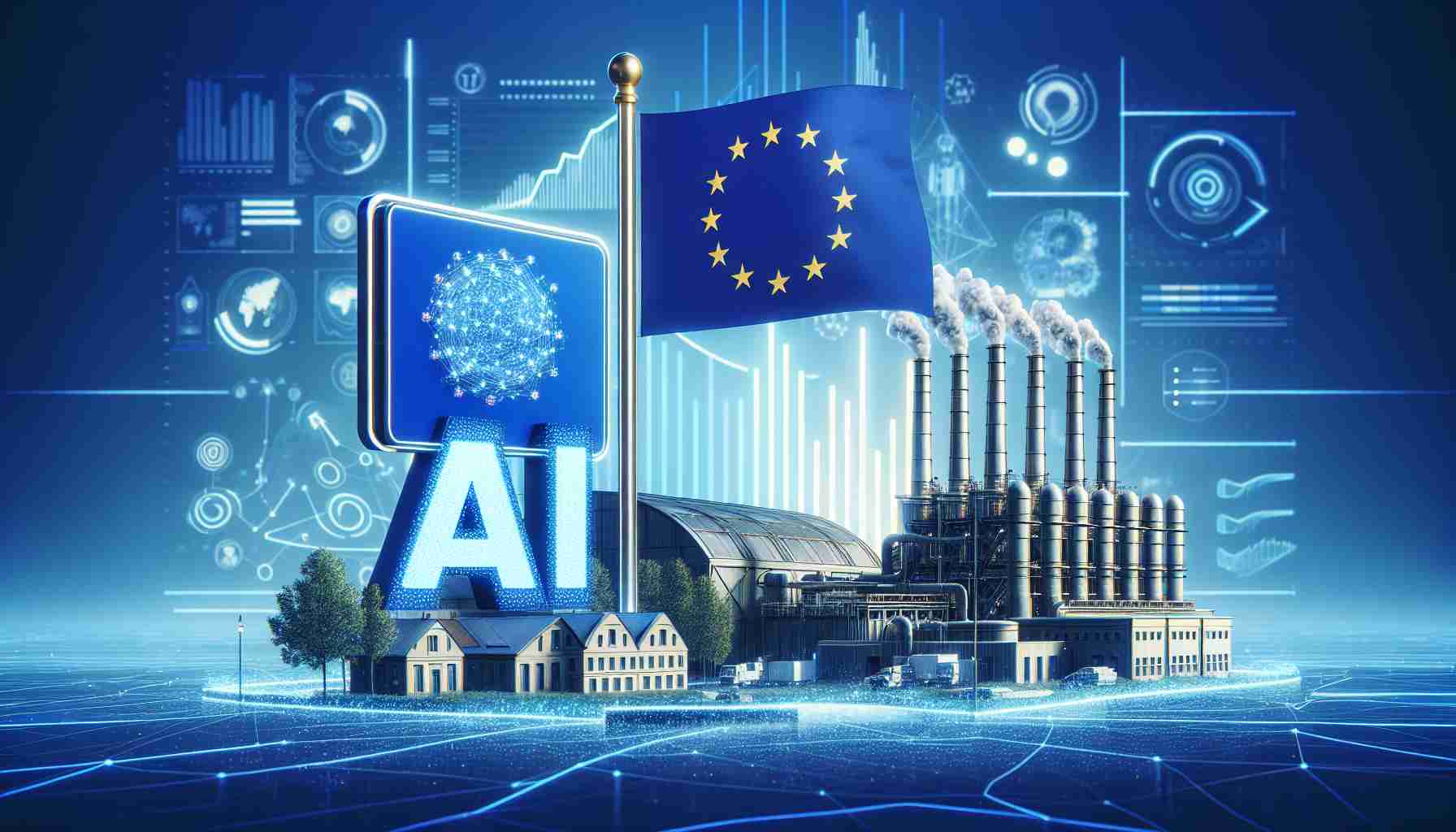The European Commission has issued a call for the creation of Artificial Intelligence (AI) factories as part of its strategy to enhance Europe’s role as a leader in trustworthy AI. In a recent press release, the Commission outlined its vision for these facilities, which will leverage the EU’s advanced high-performance computing (HPC) network.
These AI factories are designed to be accessible to a diverse range of European users. Start-ups, industries, and researchers will benefit from these innovative hubs, which aim to consolidate essential components for AI development: computational power, data access, and specialized talent.
One of the pivotal functions of these factories will be to assist AI developers in training large-scale generative AI models. By utilizing EuroHPC supercomputers, these developers will gain vital access to data services, computational resources, and storage options necessary for cutting-edge AI advancements.
The interconnected nature of these factories will foster a collaborative framework throughout Europe. This unique network is expected to enhance knowledge sharing and innovation, resulting in an encompassing European initiative for AI development, ensuring that the continent remains at the forefront of this rapidly evolving field. Through this ambitious project, Europe aims to cultivate a robust ecosystem for AI, reinforcing its commitment to ethical standards and the advancement of technology.
EU Proposes AI Factories to Solidify Dominance in Artificial Intelligence
In a bold move to enhance its position in the global AI landscape, the European Commission has called for the establishment of AI factories throughout the continent. This initiative is part of a broader strategy aimed at positioning Europe as a leader in the development and application of ethical and trustworthy AI technologies. The proposal not only highlights the importance of advanced computing resources but also emphasizes the need for collaboration among various stakeholders in the AI ecosystem.
What are AI factories?
AI factories are specialized facilities designed to accelerate the development of artificial intelligence technologies. These centers will provide vital resources such as high-performance computing capabilities, extensive data access, and the necessary infrastructure to support AI research and development activities. Ultimately, the goal is to create an integrated network of innovation hubs that can support a wide range of AI applications across industries.
Key Questions and Answers Related to AI Factories
1. What is the primary purpose of AI factories?
– The primary purpose of AI factories is to provide accessible resources and infrastructure that support the research, development, and training of AI models, particularly large-scale generative AI models.
2. How will these factories impact European industries?
– AI factories will empower European industries by providing access to advanced computing resources and facilitating collaboration among businesses, start-ups, and research institutions. This access can enhance productivity and innovation across sectors.
3. What are the expected benefits for small and medium-sized enterprises (SMEs)?
– SMEs will gain affordable and scalable access to top-tier computing resources and expertise, enabling them to adopt AI technologies and compete more effectively in the market.
4. Is there potential for ethical concerns regarding AI development in these factories?
– Yes, ethical considerations regarding bias in AI algorithms, data privacy, and the transparency of AI decision-making processes must be addressed to ensure that AI technologies are developed responsibly.
Key Challenges and Controversies
– Infrastructure and Investment: Establishing AI factories will require significant investment in infrastructure and technology. Securing adequate funding and support from both public and private sectors may present a challenge.
– Data Privacy and Security: The use of large datasets for training AI models raises concerns about data privacy, especially in light of strict regulations like the GDPR. Ensuring compliance while leveraging shared data will be crucial.
– Talent Shortage: The demand for skilled personnel in AI development is soaring. There may be challenges in attracting and retaining the necessary talent to operate these factories effectively.
– Inter-community Collaboration: Achieving true collaboration among diverse stakeholders across different EU countries can be challenging due to differing regulations, interests, and technological capabilities.
Advantages of AI Factories
– Enhanced Collaboration: AI factories will encourage collaboration between academia, industry, and government, fostering a synergetic environment for AI growth.
– Increased Accessibility: By providing centralized resources, these factories will democratize access to AI technologies, allowing smaller players to contribute to and benefit from advancements in the field.
– Fostering Innovation: The establishment of dedicated AI development hubs can drive innovation, leading to the creation of novel applications and services powered by AI.
Disadvantages of AI Factories
– Resource Disparities: There is a risk that some regions may benefit disproportionately, leading to further disparities in technological development across the EU.
– Over-regulation Concerns: Striking the right balance between fostering innovation and implementing necessary regulations can be challenging, potentially stifling creativity in the sector.
– Dependency on Infrastructure: A heavy reliance on centralized facilities may limit the agility and responsiveness of start-ups that require more flexible solutions.
As the EU embarks on this ambitious journey to establish AI factories, it is crucial to thoughtfully navigate the associated challenges and controversies. Through strategic collaboration and investment, the initiative has the potential to solidify Europe’s standing in the global AI arena while promoting innovation and ethical standards in technology development.
For more information about AI initiatives in Europe, you can visit the European Commission’s main website at European Commission.






















